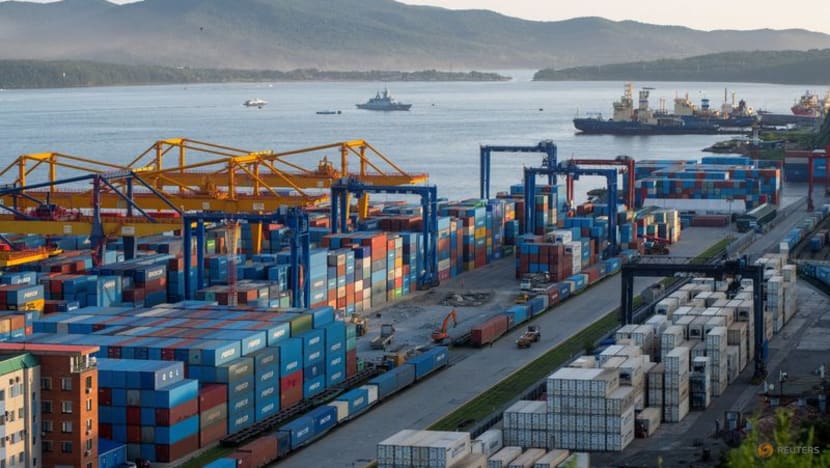Russia, Cuba and North Korea escape worst of Trump's tariff wrath

A general view shows a commercial port in the far eastern city of Vladivostok, Russia, on Aug 13, 2024. (Photo: REUTERS/Alexander Manzyuk)
MOSCOW: While US President Donald Trump announced tariffs on allies and foes including Europe, India, Japan and China, some of the world's most heavily sanctioned countries - Russia, Belarus, Cuba and North Korea - avoided being singled out for special punitive treatment.
With the world gripped by trade war, Trump imposed a 10 per cent tariff on most goods imported to the United States. China, the biggest supplier of goods to the US, now faces a 54 per cent tariff on all exports to the world's biggest consumer.
"In the face of unrelenting economic warfare, the United States can no longer continue with a policy of unilateral economic surrender," Trump said as he presented the tariffs.
The White House released a list of comments from people praising his tariffs. They said ordinary American workers would benefit after years of what they described as abuse from trading partners such as China.
Trump said he would impose a 10 per cent baseline tariff on all imports to the United States and higher duties on dozens of countries. Russia, Cuba and North Korea did not appear on the list of countries facing higher 'reciprocal' tariffs released by the White House.
US intelligence agencies said in their annual threat assessment that China, Russia, Iran and North Korea were the biggest potential nation-state threats to the United States and Trump had threatened Moscow with new trade measures.
Asked why Russia was not on the list, US Treasury Secretary Scott Bessent told Fox News that the United States did not trade with Russia and Belarus and that they were under sanctions.
Goods trade between Russia and the United States was US$3.5 billion last year, according to US figures. In 2021, the year before the Russian invasion of Ukraine, it was US$36 billion.
FUTURE UNCLEAR
White House Press Secretary Karoline Leavitt told Axios that Russia was left off because there was no meaningful trade with it, and Cuba, Belarus and North Korea were not included because existing tariffs and sanctions on them were already so high.
Russia, which is under more than 28,595 different Western sanctions, has classified trade data since the start of the war.
US goods imports from Russia totaled US$3.0 billion in 2024, down 34.2 per cent from 2023, according to the office of the US Trade Representative.
For Russia, though, the biggest risk is a potential slowdown in global demand from the wider tariff war - which could hit the price of oil.
The Russian central bank warned officials earlier this year that the United States and OPEC have the capacity to flood the oil market and cause a repeat of the prolonged price collapse of the 1980s - which contributed to the fall of the Soviet Union.
On Sunday, Trump told NBC News he was very angry after President Vladimir Putin criticised the credibility of Ukrainian President Volodymyr Zelenskyy, and the US president suggested he could impose secondary tariffs of 25 per cent - 50 per cent on buyers of Russian oil.
















